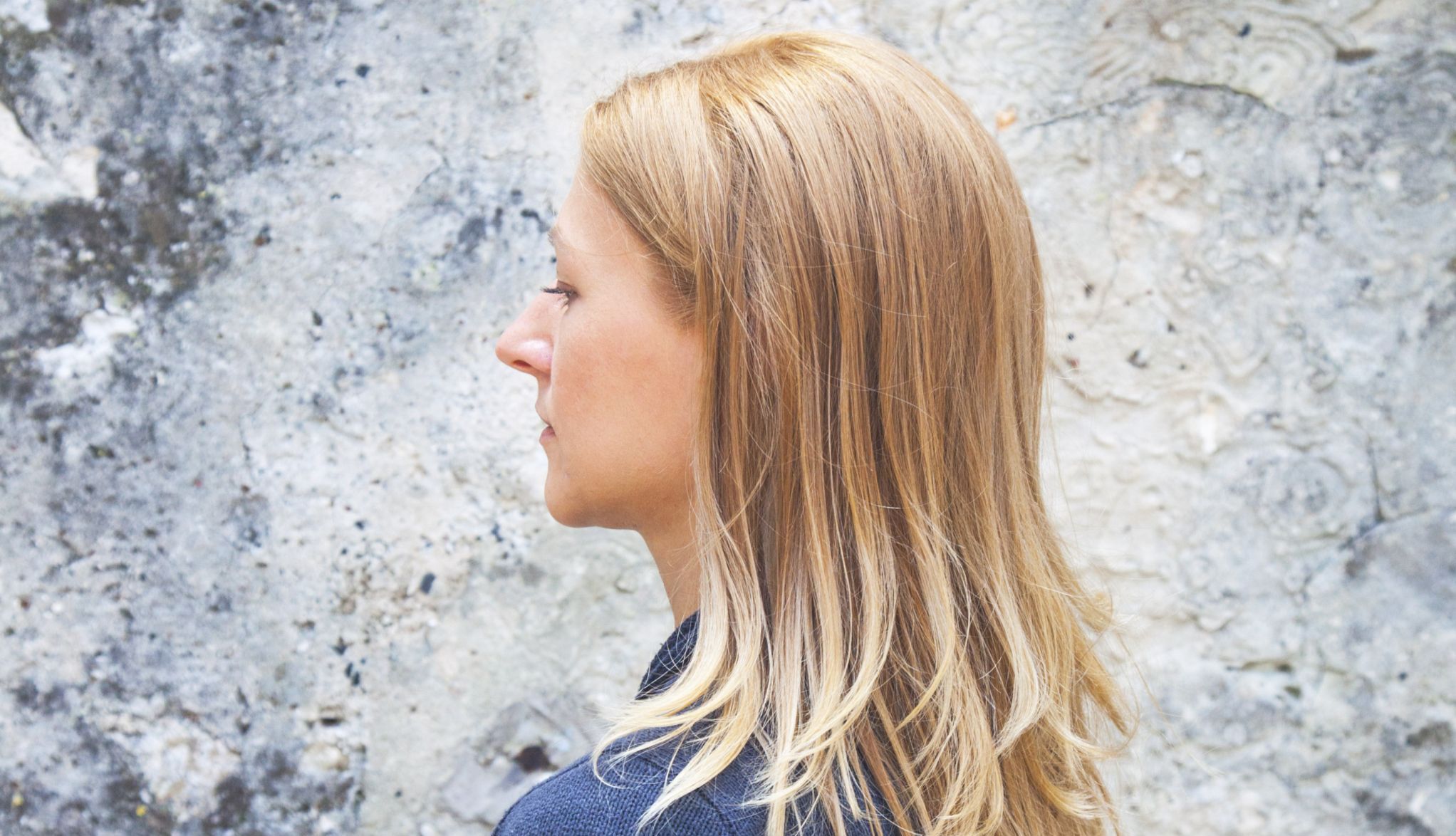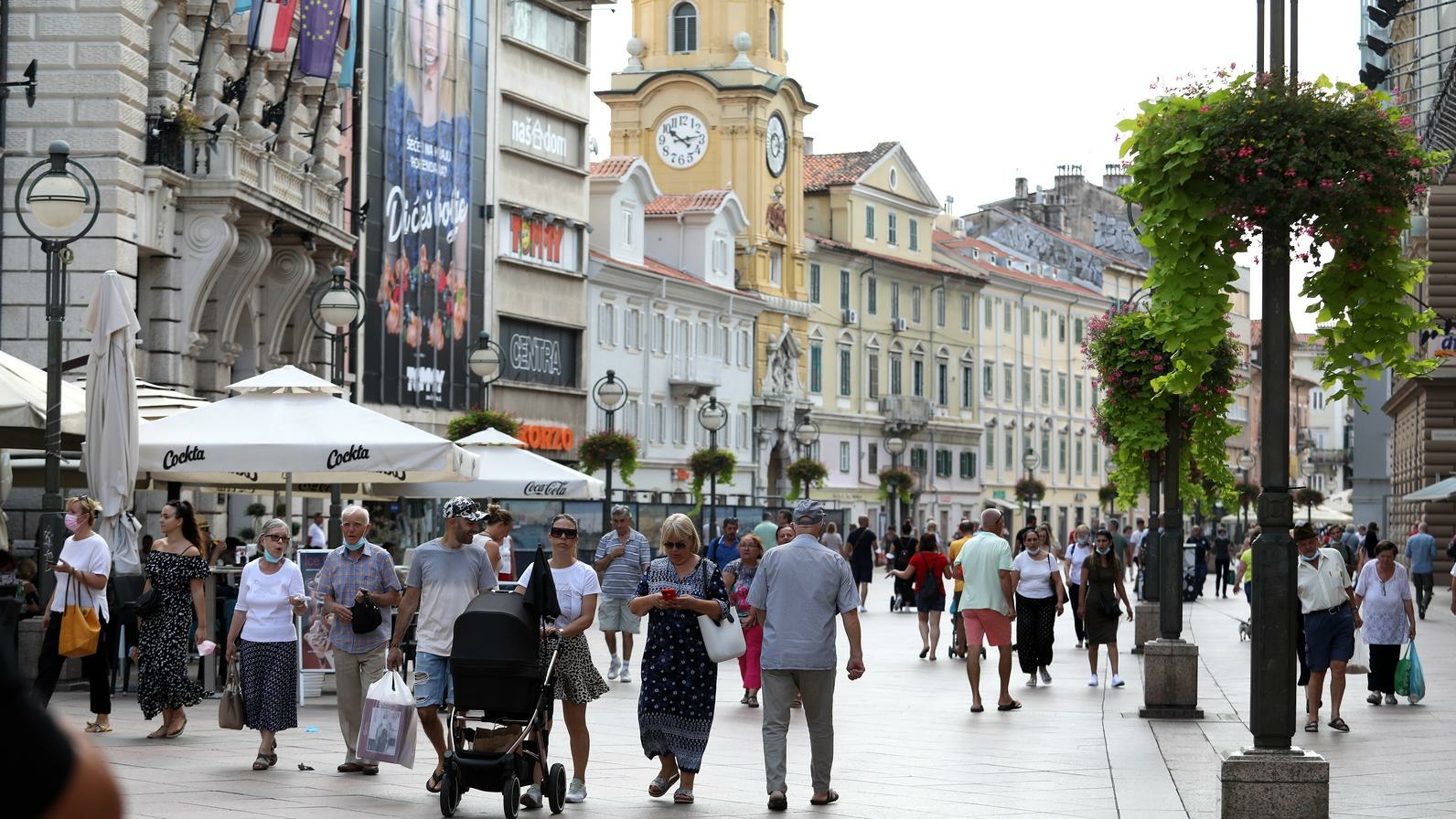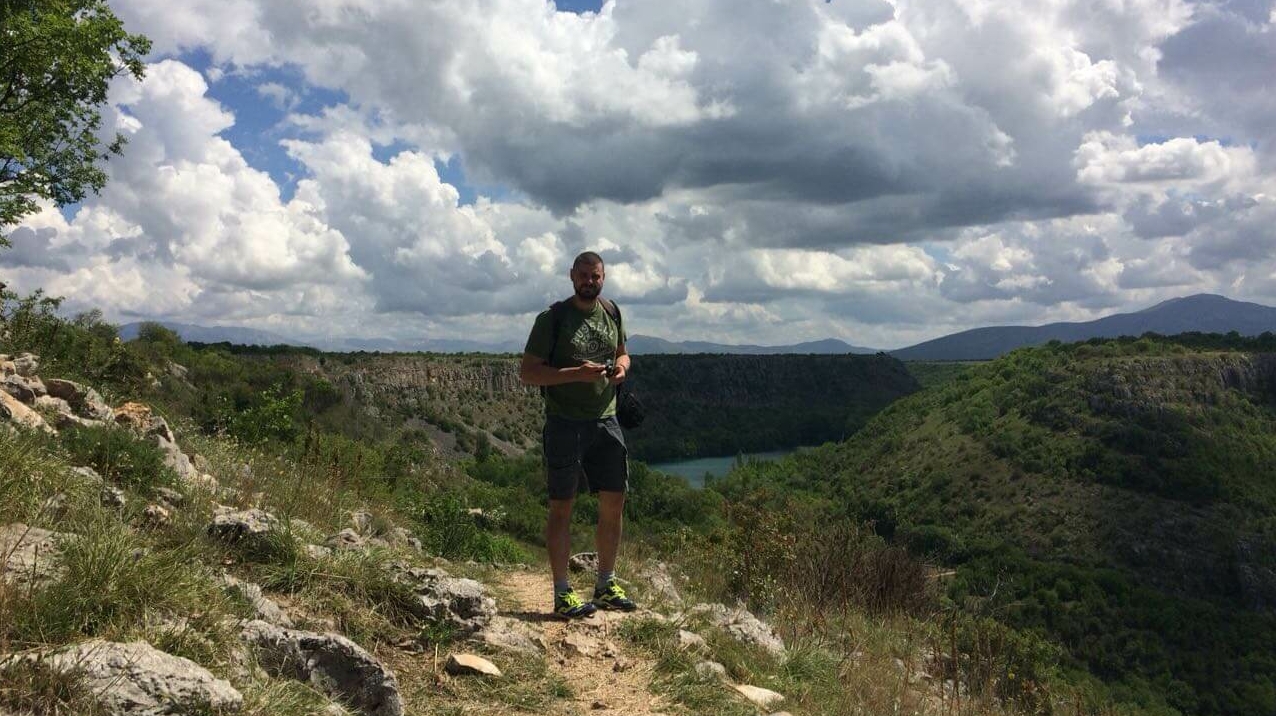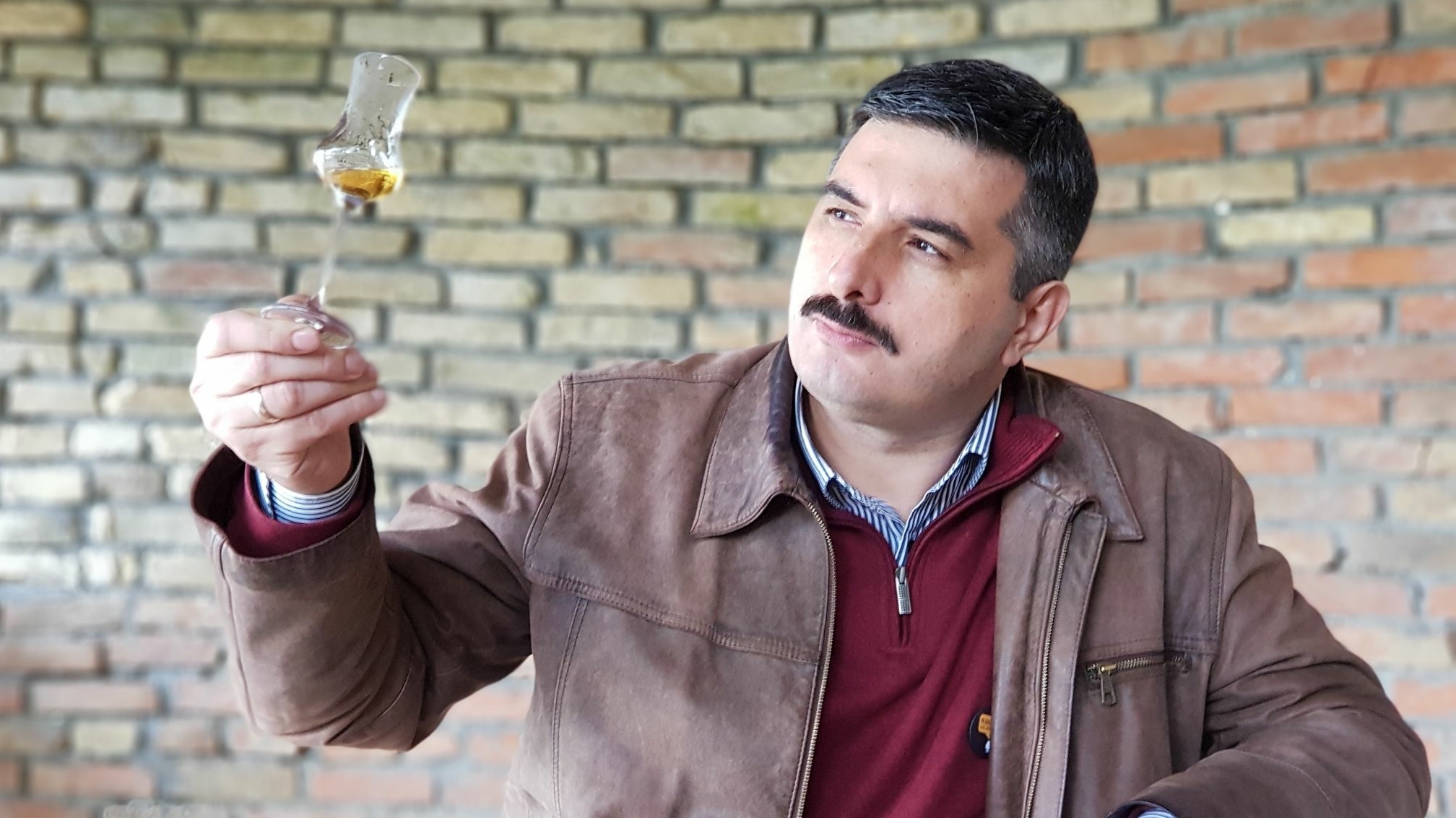Quick, agile, with a friendly smile, slight build and such a fresh face and bright eyes that she could easily pass for a highschooler even though she is 30. She works in one of the best-known cafes in a popular holiday spot, a historic town on Istria’s west coast. She is already known as one of the best waitresses. Guests, regular and new, quickly grow fond of this hyperactive young woman. However, when you meet her and hear her talk for the first time, after the first impression of her quick sentences – an impression almost of naivety, some would say – purity of heart – you hear a distinct maturity, wisdom and natural intelligence of the old, folk kind. Her speech especially contributes to this: although she has adopted many local, everyday Chakavian words, any attentive listener will immediately notice the archaic Morava and Šumadija melody. It is as if you suddenly hear Petrija from Mihailović’s legendary novel in this modern young woman who looks as though she could be from any West European country. Even more ironic – or fateful – is the fact that the stress in the dialect of this young woman matches the stress in the Istrian dialect – in both, the stress in on the second syllable.
This young woman with teenage looks is called Jovana – a name that cannot easily blend in – and she came to Istria from Kraljevo a few years ago. She married a local man, an Istrian, from a house where not only the Istrian Chakavian dialect but also the Italian Istro-Venetian dialect is spoken, which somehow makes this South Slavic “language Babylon” even more sadly comical. Jovana lives with her husband outside of town, in a quiet Istrian village, among locals. But before settling down in this village a few years ago, Jovana went through many life challenges, difficult trials and choices hard to imagine in someone her age. In all these choices, her personal decisions played only a part. The rest was governed by something bigger, wider, more general – all our recent social history with its terrible upheavals. It is another reason why Jovana’s trials and tribulations seem almost anachronistic, like things from another era, to people from generations that formed before 1991, the year Jovana was born. But they are really all too near.
A minority in the motherland
Most Serbs have heard of Žiča Monastery, but those who haven’t been to Kraljevo don’t know there is also a town borough of the same name. Jovana grew up in that borough. “Refugees live there now. People from Croatia,” she says. And then she adds an astonishing fact, a simple given, full of irony Jovana is unaware of: “They are a kind of minority there now.” If someone hasn’t realized it yet, let us clarify it: this “minority” in Žiča is Serbs from Croatia – Serbs who have come to their motherland.
Asked how it was to grow up in Kraljevo in the nineties, in the time of sanctions, bombing and all the other horrors, Jovana, confusingly, answers that she never heard of any sanctions.
“Let me tell you: I only found out there are Serbs and Croats in Croatia when I started working in Croatia during the tourist season. Back home, people don’t talk about that.” True or not, Jovana utters a sentence that would sound false if there wasn’t for the naïve sincerity in it: “I didn’t know there had been a war between the Serbs and the Croats. I knew that Croatia had seceded. I didn’t listen to the news at home – we weren’t allowed and weren’t interested anyway. It isn’t mentioned anywhere in school. So how could I have known there was so much nationalism and hatred between the Serbs and the Croats? And finding out that Bosnia was made up of three nations was a real shock for me. I only found that out when I was 27. You either knew about these things from home, if there was a connection there, or you didn’t know at all.”
Kraljevo, a city in the very heart of Serbia, is made up of 94% of ethnic Serbs.
“There are many Kosovars in Kraljevo now,” she says and adds a worrying sentence: “That is why many people are leaving Kraljevo. You couldn’t get a job before a Kosovar did. The people of Kraljevo have started to deteriorate, too.”
These “Kosovars” came, of course, after the bombing of FR Yugoslavia in 1999. Does she remember these events? She says she remembers. “We would go to the basement, the adults would put bedding on kitchen tables and we children slept on that.”
Everything goes, like the hands of a clock
And then Jovana says a moving sentence like from a novel – especially moving because of her accent.
“I remember lying on that table and watching the hands of the clock on the wall. And always when I’m under stress or something, I watch the clock and its hands, just going. Right now, if I was very hurt by something you said, I know I would just stare at the clock, and it would pass. Because I know it all passes like that.”
Did she understand anything that was going on so young?
“I still don’t know who bombed us,” she smiles sadly. “I was a geek – if something was written in a textbook, I knew it. If it wasn’t written, I had no one to learn it from, especially because I lost my father young. Mom worked a lot…”
Cautiously asked how she lost her father, instead of stating a usual cause such as an illness or accident, Jovana suddenly opens a door onto a terrible personal history.
“He was in the army. He was from Postojna in Slovenia. He served in Niš.”
As though ashamed of not knowing more about her father, she quicky adds: “We have only one picture of him. I was six then. Mom remarried a few years later, and we didn’t talk about him anymore. We weren’t in contact with dad’s family anymore and couldn’t find out more.”
What Jovana says they were supposed to know fits in three sentences, each heavier than the last.
“He had been in the war. Then he became mentally ill.”
And the final sentence, as a descent into a new circle of hell:
“And then, he hanged himself.”
She pauses and then gives the context that amplifies the tragedy.
“A few months before the bombing.”
Did her mother tell her what happened?
“Probably. But I don’t remember. I only know that we cried every time that mom left the house after that. We were afraid she wouldn’t come back.”
Does she remember her father at all?
“Very little.”
After the family tragedy – a tragedy that is a direct consequence of our recent collective history – and as if things hadn’t been insufferable enough already, her father’s family severed all contact with Jovana’s mother. With much struggle and sacrifice, she provided for her children and ensured they had relative peace. Jovana, therefore, grew up in a modest home but a home of love and togetherness. Maybe that is the reason she is so stable and strong today, as many people who grew up in much safer and more affluent homes are not. At sixteen, she already started to work in cafes during the summer and gave math lessons. After secondary economics school, she was already an experienced professional in her field. She worked in good hotels in Kopaonik.
A child of the Balkans
How did she feel in Croatia in the beginning? Did she feel apprehension or fear because of where she is from?
“No. I didn’t even know I was from an ‘enemy’ country. I didn’t know anything about it. I never read newspapers. How was I to know then?”
People still talk, don’t they?
“I had no such problems in the beginning, except with some people from Slavonia. It was when I worked in Krk.”
No one ever said anything, even in passing?
“They did, in Poreč. The first day I came to work in the cafe, a colleague came and said to me: ‘Just so you know, I am from Slavonia, and I don’t like Serbs.’ Just like that. I said to him: ‘Listen here, my dad is from Slovenia, and my mom’s mom is from Montenegro, so I feel like a child of the Balkans, and you can keep your opinions to yourself.’ He was polite to me from then on, but… I was really astounded. Even when he smiles at me, I can see what he is really thinking. And many people I’ve met in Istria were once in the army in Serbia, often in Kraljevo. So, there are no problems there.”
She got a job in a restaurant, on a foreigners’ worker visa, and spent her free time walking and discovering the town and making new acquaintances and friends. That is how she met her future husband, also employed in hospitality. Despite their age difference of nearly ten years, she was won by his gentleness, thoughtfulness and discretion, qualities certainly partly owed to the Istrian mentality. To prevent any “misunderstandings” due to cultural differences, Jovana took her husband to Serbia before they were married, “to get to know her culture,” as she says. The Istrian was, Jovana says, fascinated by what he saw. They got married and moved into the family home of her husband’s parents. They accepted the daughter-in-law well.
There are differences in mentality in a broader sense. Jovana says that she hasn’t met a single neighbor in the village in these few years of marriage. Neighborly familiarity, a staple of the way of life in Serbia, is mostly unknown here. “Now, I am used to the solitude, and the noise and bustle in Serbia actually bother me when I go to visit. I don’t know if I could live in that racket again.”
Despite these cultural and private misunderstandings, she and her husband have a happy marriage. But the question that hangs in the air for anyone who has changed their place of living – the question of return one day – remains.
“I wouldn’t go back,” Jovana is resolute. “I have a good life with my husband.” She again sounds like she’s from another time.
And what do they say there about her choices?
“They don’t say anything, but they say behind my back, I am sure. Some are thrilled. But no one has said ‘what are you doing there with those Croats’. My mother is thrilled I’m here. My family used to go to the seaside in Istria in a yellow Fiat 600. My grandmother’s favorite place was Istria.
I ask her where she sees herself in ten years.
“Here, I hope – raising children.”
The heart in the right place
In the context of a country where a silent or, rather, objective assimilation of its Serbs is an acute, ever-present problem, a logical question arises. How will they raise their children? Will they tell them where their mother is from?
“Of course we will. They will certainly go to Serbia every winter.”
And what about religion?
“My husband is Catholic, and I am Orthodox, but we share the same worldview. I will tell you that worldview. We agree that popes and patriarchs have replaced kings and emperors and that they care more about power than faith. We are more inclined to believe in rebirth. Neither my husband nor his family is religious. Still, we agreed that we should call the priest because the house hasn’t been blessed for who knows how long. Now, although it isn’t important to either of us, we decided to go to Pula and get an Orthodox priest. I still favor my side a little bit,” she laughs merrily. She then adds, a little apologetically: “For a while in high school, I used to visit monasteries, but then I stopped. But I can’t believe that what I feel, what we can’t touch and what we in the people call ‘the soul’ simply vanishes with the person.”
In Istria, newborn children are usually baptized, sometimes out of tradition but mostly out of unwritten social convention and conformism. The same goes for other sacraments such as First Communion and confirmation, celebratory events for families and children here, when families gather and children most look forward to the gifts, often the most important part that follows the ritual and the church initiation. When Jovana has children and if she decides to baptize them, what church will that be in, seeing as she is in a “mixed marriage”?
“I’m not sure, I’m not sure what to tell you,” she hesitates. “I’d love for them to be baptized in an Orthodox church,” she admits. “Especially because the Catholic Church recognizes that, and if it’s that necessary because of society, we can do the confirmation that is done here when the child is sixteen or eighteen. We would do both,” she answers a little insecurely. “But I am sure I would teach our children everything about the Orthodox faith, and all that I know about the Catholic faith,” she adds.
She tries to find a way to express the complexity of her emotions, of local customs and of the family she became a part of.
“To be honest with you – and it’s not nationalism, believe me – there is something that brings me back to the Orthodox faith. My husband doesn’t celebrate Catholic Christmas. I mark the occasion. But we have a full house of guests on Orthodox Christmas.”
The children will, therefore, know who they are in that sense, too?
“I am sure of that.”
We end our conversation, interrupted several times by the orders of customers, whose numbers are steadily increasing. The start of the tourist season is approaching. Jovana gets up and rushes to the tables and foreign customers filling the terrace. She has better things to do right now than talk about identities. She knows where she belongs anyway, despite everything. And her heart, as all good people’s, is in the right place.
Translation from Croatian: Jelena Šimpraga
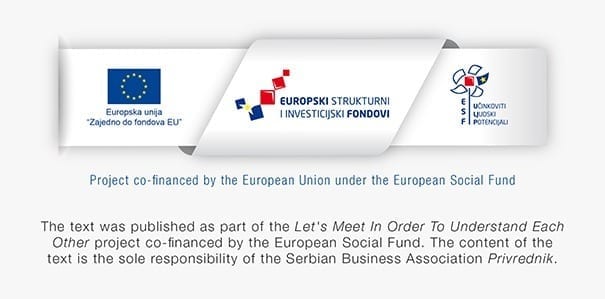
This post is also available in: Hrvatski

